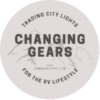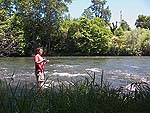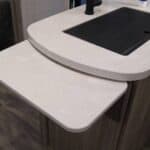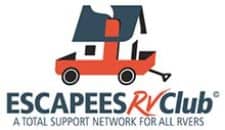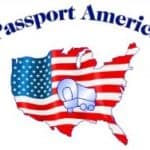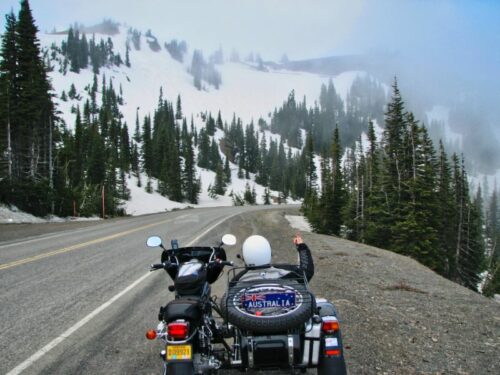All RV lifestyles have many things in common, yet each has a distinct set of characteristics that set them apart. In this article I attempt to capture the most significant characteristics of the major lifestyle categories: RV Camper or Weekender, Vacationer, Snowbird, and Fulltimer.
RV terminology evolves with the rest of our language and meaning can change with time. What one person calls a vacationer another may call a snowbird.
My definitions are based on what I consider major categories with easily identifiable characteristics. At the same time, I recognize that the lines between them may be drawn in different places by others.
Nevertheless, this categorization will provide the new RVer a good starting point.
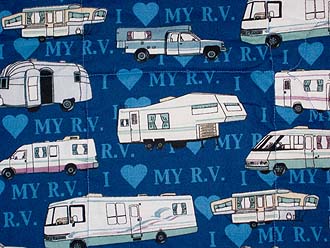
The Weekend Warrior
I use “RV camper” and “weekender” interchangeably because they both imply a short trip ranging from a couple of days to a week.
RV camping is a few notches above tent camping with advantages such as keeping all camping gear in the RV, more interior room, cooking facilities, and a sturdier structure.
Major characteristics of this RV lifestyle are the following:
Trip Duration
Short trips ranging from a few days to a week, requiring limited cargo and storage space.
Activities
Activities focus on relaxation and time away from the normal demands of life.
Housekeeping
Are you kidding? What weekender is going to clean or do laundry? Sufficient storage is necessary for carrying clean clothes for the duration of the trip.
Hygiene
Again—are you kidding? Maybe the teeth get brushed in the morning, but showers are completely optional, even if the campground offers facilities.
RV & Equipment
Equipment is designed to be light, quickly set up, easy to transport, and quick to tear down. RV’s suitable for this lifestyle receive the least amount of use and are the least durable.
Climate
Weekenders typically seek out moderate to warm climates. Equipment is designed to keep occupants comfortable in a narrow range of weather conditions, generally well above freezing.
Staying in Touch
Cell phones are taken in case of emergency, but more often RV campers desire to be outside the reach of modern communications.
RV Type
The following RV types are well suited to this lifestyle: Travel Trailer, Truck Camper, Fiberglass Camper, Fifth Wheel
Vacationer
Vacationers take the RV for longer trips than weekenders, but return home within a few weeks. I like to limit this category to those who spend no more than a month in the RV.
Major characteristics of this RV lifestyle are the following:
Trip Duration
Medium trip duration of one to four weeks. More cargo and storage space is required to hold clothing and food items.
Activities
Activities focus on slower-paced relaxation at multiple destinations in nature or urban settings.
Housekeeping
Some housekeeping may be necessary during longer trips. A few loads of laundry may need to be washed, but not enough to carry a washer and dryer in the RV. Plan to make one or two stops at a full service RV park with a laundry room or near generous friends.
Hygiene
Depending on the destination for the day, it may be necessary to shower and do all other normal hygiene activities each day. The RV may provide all necessary facilities or the park showers may be used.
RV & Equipment
Equipment is designed for compactness while providing sufficient amenities for the longer trip. Vacationing RV’s receive light use so the durability tends to be on the light side as well.
Climate
Like weekenders, vacationers typically seek out moderate to warm climates. Equipment is designed to keep occupants comfortable in a wider range of weather conditions, but generally not below freezing.
Staying in Touch
Longer vacations require some planning to pick up mail and pay bills. Mail can be held by a neighbor and bills can be pre-paid or paid electronically from the road. Cell phones become necessary to keep in touch with family.
Local Transportation
In this class, the RV’s are generally small enough to be used as local transportation. A secondary mode may be towed or carried, if the RV is large enough to accommodate it. Vacationers typically limit this to bicycles or a small boat.
Snowbird
Snowbirds like the moderate summers of northern latitudes and warm winters of the south. To live in both climates they take the RV for an entire season and return home when the north thaws.
During the summer months the RV generally sits unused until the chill returns once more.
Major characteristics of this RV lifestyle are the following:
Trip Duration
Snowbirds live in the RV for months at a time and need an RV that provides the necessities and comforts of life.
Activities
Daily activities of snowbirds encompass the full range of living. While most snowbirds are retired, some take on part-time or full-time work to supplement their income. Work or not, they leave plenty of time for enjoyable activities. This lifestyle must also include necessary activities such as vehicle maintenance, managing personal finances, dealing with illness, absentee voting, and everything else in between.
Housekeeping
All housekeeping tasks must be handled sooner or later. I’m not aware of maid service for RV dwellers, so this leaves the chores to the snowbirds. Laundry becomes a weekly task and needs to be considered when selecting the RV.
Hygiene
All daily hygiene tasks need to be attended to. It may become cumbersome if the RV does not offer all required facilities, forcing the snowbirds to use the RV park showers. Consideration should be given during the RV selection process to each person’s hygiene routine to ensure that the selected model will meet the needs.
RV & Equipment
Snowbirding RV’s must be durable enough to withstand up to six months of constant use per year. Strong consideration must be given to the floor plan, quality and feel of floor coverings, furniture quality and comfort, quality and workmanship of shower and sink areas, and the overall construction of the unit.
Climate
Snowbirds seek out warm climates though they may occasionally get caught in cold weather. Equipment is designed to keep occupants comfortable in a wider range of weather conditions, but generally not below freezing.
Staying in Touch
Being gone for an entire season requires advanced planning to ensure family and friends can get a hold of you and all other obligations are met. Snowbirds take advantage of mail forwarding services or solicit the help of a willing friend to collect and regularly forward postal mail. Frequent access to the Internet becomes necessary for email, monitoring financial accounts, and paying bills.
Local Transportation
In this class, RVs are getting too large to be used as local transportation. Snowbirds in motor homes usually take a toad for this purpose. Those living in travel trailer or fifth wheel have an advantage of being able to use the tow vehicle as local transportation.
Full-Timer
Fulltimers call the RV their only home. They have no fixed-foundation home to return to and therefore need all the necessities of life contained in the RV.
It is debatable how long one must commit to live in a recreational vehicle to be considered a fulltimer—I propose that a minimum of one year is a good starting point.
Major characteristics of this RV lifestyle are the following:
Trip Duration
Fulltimers are permanent RV residents. They may stay in one place for extended periods or roam from one destination to another.
Activities
Daily activities of a fulltimer are no different from those living in a house. Many fulltimers are retired and do the things that retired folks like to do. One distinction can be made, though, between fulltimers and their house-dwelling counterparts: fulltimers love the freedom of relocating and traveling any time they wish.
Housekeeping
All housekeeping tasks must be attended to. Laundry is a weekly task and needs to be considered when selecting the RV. The exterior and roof of the RV requires occasional cleaning which can be challenging because most parks object to RV washing on their property. A convenient time to wash the RV is during a move.
Hygiene
All daily hygiene tasks need to be attended to. It may become cumbersome if the RV does not offer all required facilities, forcing the fulltimer to use the RV park showers. Consideration should be given during the RV selection process to each person’s hygiene routine to ensure that the selected model will meet the needs.
RV & Equipment
Fulltimer RV’s must be durable enough to withstand constant occupancy. Strong consideration must be given to the floor plan, quality and feel of floor coverings, furniture quality and comfort, quality and workmanship of shower and sink areas, and the overall construction of the unit.
Climate
Fulltimers can reside in all climates, but generally avoid the extreme low temperatures. Equipment is designed to keep occupants comfortable in a wider range of weather conditions, with some models guaranteeing comfortable living below the freezing point. No matter how well insulated, RV’s have difficulty maintaining comfortable temperatures as the outside cools below freezing. Heating costs rise dramatically as temperatures drop.
Staying in Touch
Fulltimers have no constant mailing address except at a mail forwarding service. Convincing a generous friend to be the mail forwarding service will eventually wear on that person and become a burden—a paid-for mail forwarding service should be put into the budget. Cell phones are the only form of voice communication for the majority of fulltimers. Frequent access to the Internet becomes necessary for email, monitoring financial accounts, and paying bills.
Local Transportation
In this class, RVs are too large to be used as local transportation. Fulltimers in motor homes usually take a toad for this purpose. Those living in a travel trailer or fifth wheel have an advantage of being able to use the tow vehicle as local transportation.
Original founder and writer for Changin' Gears. Former full-time RVer!
-
Charlie Kerekeshttps://changingears.com/author/charlie-kerekes/
-
Charlie Kerekeshttps://changingears.com/author/charlie-kerekes/
-
Charlie Kerekeshttps://changingears.com/author/charlie-kerekes/
-
Charlie Kerekeshttps://changingears.com/author/charlie-kerekes/
